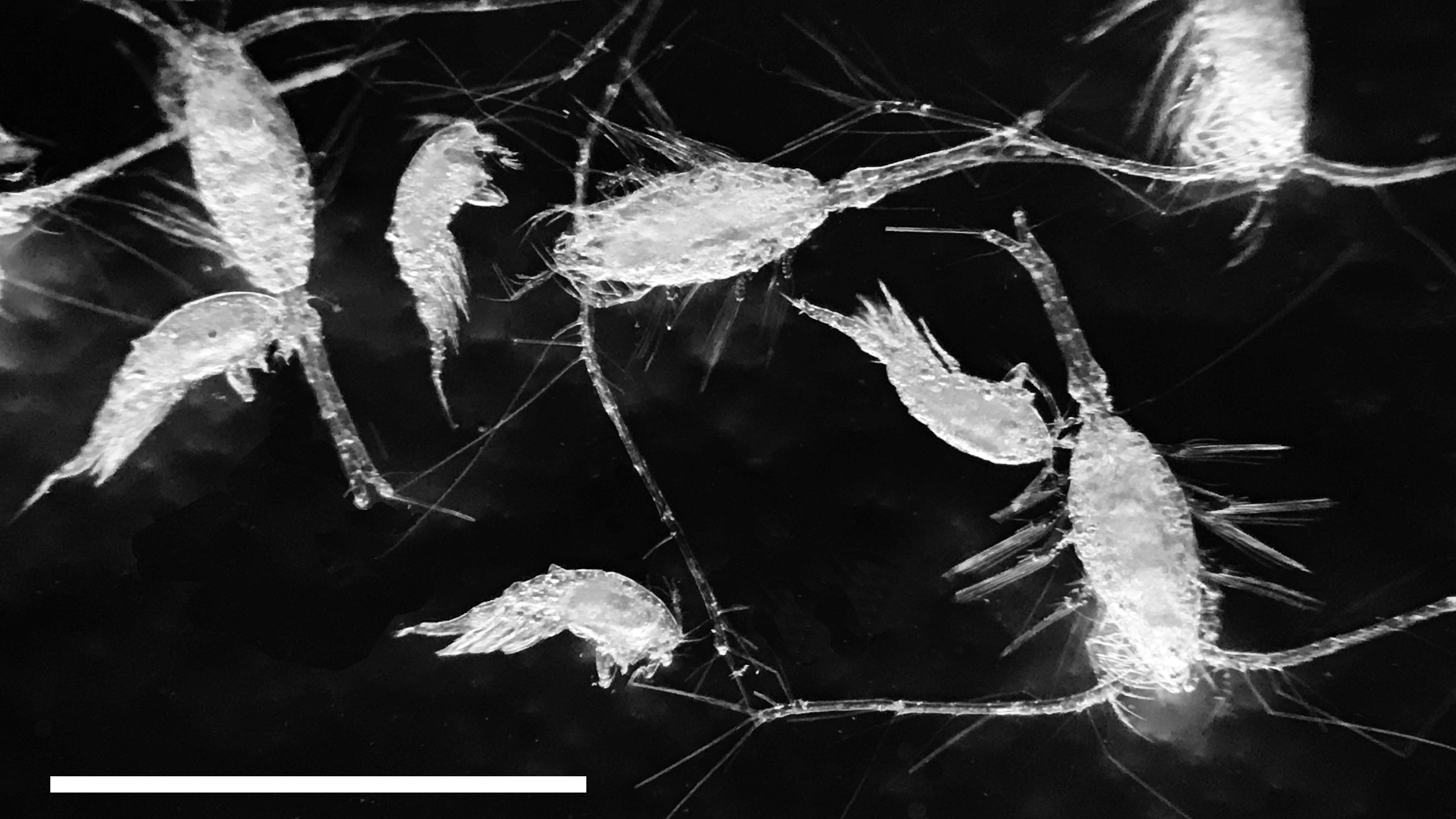Principal Investigator: Dr Daniel Mayor University of Exeter
Summary
The C-QWIZ project will fill knowledge gaps in our fundamental understanding of the physiological response of zooplankton to climate change.

We will do this by researching how zooplankton of different sizes respond to increasing temperatures at different levels of food. Zooplankton are cold-blooded, meaning their physiological rates increase as their environment warms. By contrast, the body size of zooplankton decreases with warming, although the mechanism underlying this phenomenon remains uncertain. We will translate this new understanding into existing mathematical models of the global ocean ecosystem.
This project will be the first to understand the mechanisms by which global warming affects zooplankton-mediated ocean carbon storage throughout the 21st century. This will help us to more reliably predict the response of zooplankton to ocean warming.
Impact
Our chosen model is used by scientists around the world to forecast how Earth's future climate will change. These forecasts are used by politicians and policy makers to decide on how best to manage the future of our planet. Improving these models therefore ensures that our science delivers real and lasting change for the benefit of all society.
Background
Microscopic organisms in the ocean called phytoplankton use the sun's energy to convert carbon dioxide (CO2), nutrients and water into organic matter, just as plants do on land. This organic matter is grazed upon by tiny animals called zooplankton that are found throughout the global ocean.
Marine zooplankton are so abundant that the total weight of their global population exceeds that of the ~8 billion humans alive on Earth today. Like all animals, zooplankton produce vast quantities of faecal matter that they release into the surrounding environment. Some of this waste sinks down into the abyss, carrying with it carbon that was once in the atmosphere as carbon dioxide. Any marine snow that reaches the deep ocean may be locked away down there for 100's of years.